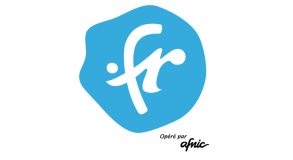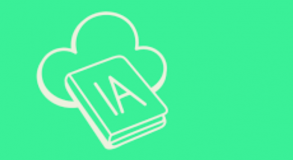This month (the exact date is apparently not known), we are celebrating the thirtieth anniversary of the World Wide Web. It was in March 1989 that Tim Berners-Lee and then Robert Cailliau laid the foundation stones for what was to become one of the most important services to use the Internet.
Today, it is an understatement to say that the Web has been a huge success. It has revolutionized a vast range of the things we do, and changed, often for good, sometimes worse, the way we do those things. One example of the change is access to encyclopedic information: instead of huge paper encyclopedias, very cumbersome but never complete, very expensive and updated with a great deal of delay, we now have Wikipedia, with which we can access a colossal amount of information with great ease and very little cost.
The Web is a perfect illustration of an important characteristic of the Internet: innovation without permission. No political party had put it on its agenda, no minister had to give his or her agreement or disagreement, no company controlled the Internet, no international organization served as a checkpoint to prevent new ideas from coming forth. Berners-Lee and a few of his colleagues had an idea, implemented it, and people adopted it.
In addition, the World Wide Web has spurred the massive deployment of the Internet, which was much less widespread before the Web became, for many future Internet users, a powerful reason to connect. If the .FR top domain now has more than three million domain names, it is largely thanks to the Web.
The Web has evolved a great deal over the last thirty years, and it will certainly continue to do so. Some of those developments are positive, but not all of them. But before discussing the future, let’s look at the past. What was the Web, originally?
The original Berners-Lee article insisted on the notion of hypertext, which was at the time a “buzzword”, like IA or blockchains today. The term is hardly used anymore, even if hypertext links remain present and are widely used.
I have sometimes seen the Web be described as the conjunction of three techniques:
- HTML, the page description language that is behind most web pages and includes these famous hypertext links,
- HTTP, the network protocol by which pages are sent from the server to the client,
- URL, the addressing mechanism of these pages, which allows, for example, this link to work (the URL is ` http://dompterlestrolls.fr/?p=107). Before URLs existed, to indicate where a resource was on the Internet, you had to enter complicated sentences such as “go to folder thingummy, then to subfolder thingamajig”. Note that the URL includes a domain name but is more detailed than that.
Like all purely technical definitions, it does not account for all the features that make up the Web. And each of these three techniques is questionable:
- there are Web resources that are not in HTML but, for example, in the form of a video format (not counting pages without any HTML and made entirely by downloaded JavaScript code),
- the HTTP protocol is only a “simple” file transfer protocol, and could be replaced without changing the Web very much,
- The URLs are genuinely crucial, the hypertext links depend on them. The URL really was a great idea, very simple, like an Egg of Columbus, but it made a lot of things possible.
In short, the Web is hard to define (not to mention the mistake of people who call the “Web” anything related to the Internet). But that doesn’t matter, it doesn’t stop the Web from working.
What is more annoying are the threats that hang over the Web today and that could radically change it, and not for the better. You may say, but what is the relationship with URLs? URLs are at the center of one of the most important properties of the Web, a property it has inherited from the Internet, the *decentralization*. Suppose you want to post something on the web? You do not depend on a major stakeholder for it to be accepted or refused. All you need is a domain name, an HTTP server, pages you can write with one of the thousands of programs available and there you are, everyone can see your https://my-interesting-web-site.fr/.
But that could change. One can easily imagine Internet users who no longer know how to use URLs and who depend on a search engine (preferably run by a large for-profit company that captures huge amounts of personal data), even to see the website of their company, despite the fact that they go to it every day. Or web browsers that hide all or part of the URL, supposedly not to impose its view on users, but in fact to better guide they way they browse the Web. Or intermediaries through which any post would need to go, and who would then choose to classify those posts according to their own criteria, to censor, or to prioritize this or that content that will sell more advertisements.
Of course, these are extreme examples. We will certainly not go that far. But they are examples of the dangers hanging over the Web. In such a world, URLs would serve no purpose: instead of users freely browsing and choosing to go to https://lyceemozart.fr/ressources/ressources-maths/ or to https://www.service-public.fr/particuliers/vosdroits/N19806, if we do not pay attention to the way we do things, we risk finding ourselves in a world where a handful of majors control our browsing.
But for a moment let’s forget such sad forebodings; let’s celebrate the thirtieth birthday by producing lots of Web sites providing information, entertainment, thought, beauty and knowledge!




